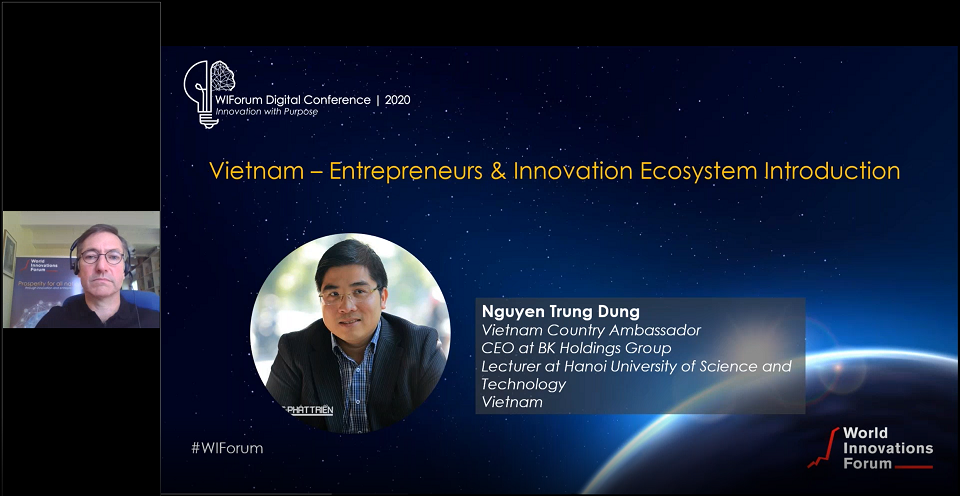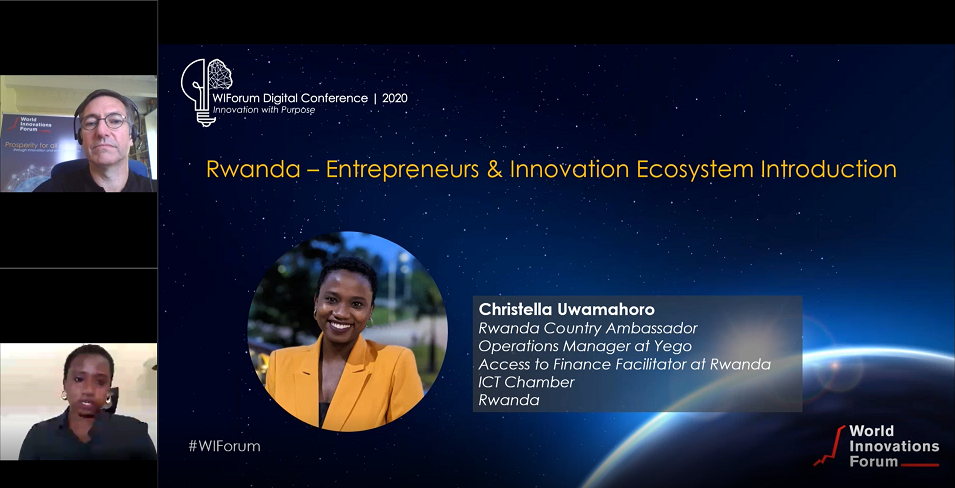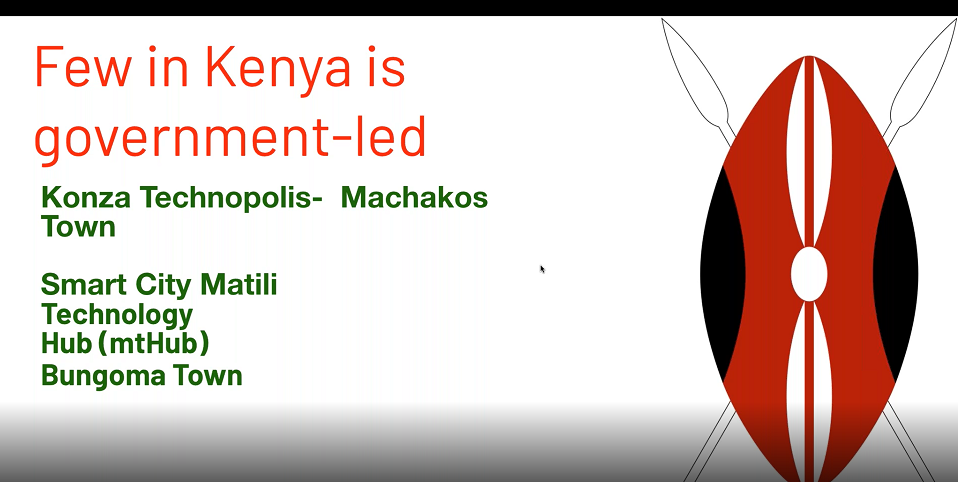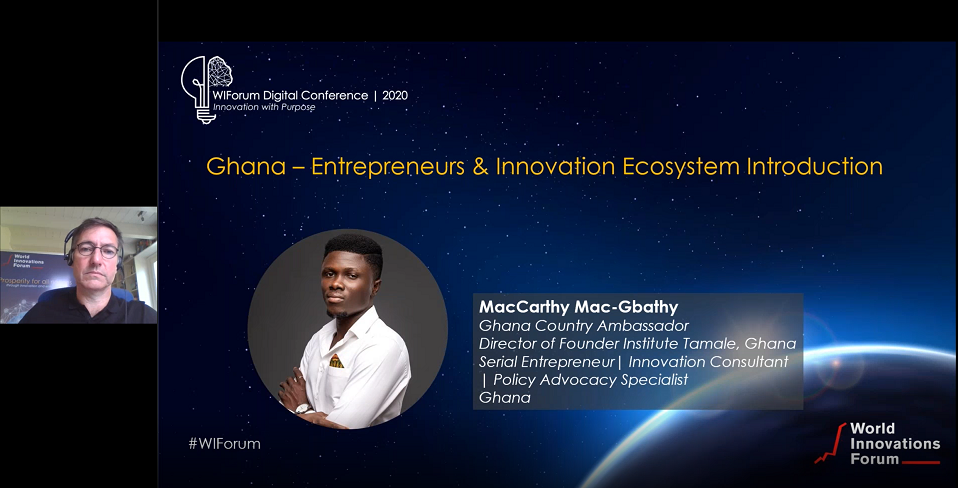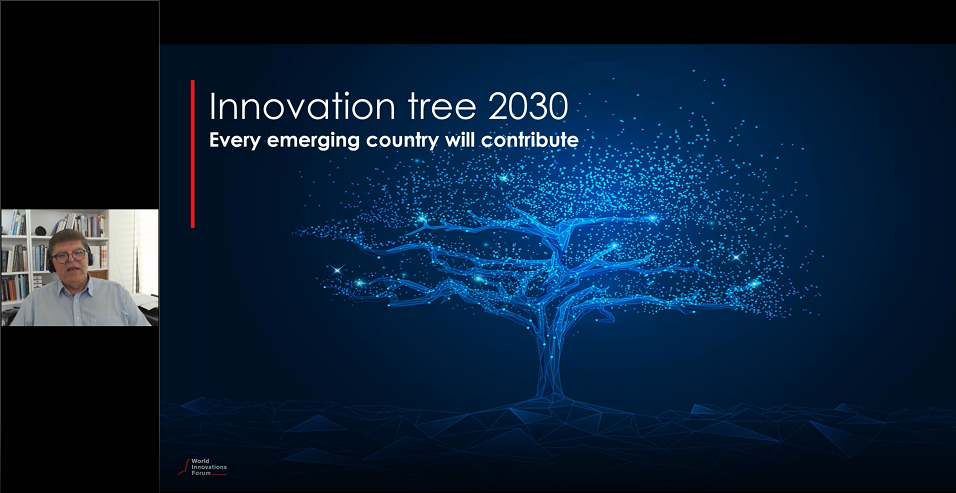Genuine Innovation Examples
We analyzed innovative companies and focused on identifying the “Disruptive Moment.” We asked ourselves if it would be possible to achieve similar results through improvements (incremental innovation). We picked Genuine Innovation Examples across different industries, such as Furniture, transportation services, Automotive, satellite communication, financial services, hospitality, and innovation management. To put it in context, here is how we define innovation for the work we do in general:
Innovation is a breakthrough that elevates people and organizations
in the way they do things that were not possible before
* IKEA – Furniture
Changed the way new furniture is made available.
Unlike the public opinion in the startup phase of IKEA, it is not the \contemporary look or the fact that everybody can assemble it; therefore, it’s cheaper. It offers a collection of “improvements,” including furniture production, distribution, offering, design, shop layout, and delivery model.
The Disruptive Moment: Customers can walk in and buy the furniture for an entirely new apartment in one day and has it the same day. That is still impossible with any other furniture company.
The sheer magnitude of the IKEA business model could not be achieved by improving a conventional furniture company or trying it step by step with incremental innovation. Many have tried but have yet to get there.
* Uber – Taxi
Change the level of trust and reliability of taxies.
Uber has been and still is fought in cities around the world. Most see the lower price and the freedom of everybody can do it as one of the critical threats. Consumers like it because it is easy to call an Uber almost anywhere in the world, with no language issues or payment issues. They see the car coming in the app, and if it cannot come for whatever reason, they see it too. Uber drivers are generally more friendly, and the whole experience is considered better. The innovation is a collection of features and concepts.
The Disruptive Moment – still today: Customers never have to worry whether the ride gets more expensive, the driver tries to heat, only takes cache, or similar payment issues. The rider knows the price upfront, which is deducted at the end of the ride, no matter what. That is still impossible with any other taxi organization.
The perfectly aligned customer experience of getting, paying, and valuing a ride could not be realized with an improvement of existing Taxi organizations.
* Tesla – Electric Vehicles
Change the way cars get refueled/charged
Tesla is known to be the thought leader in environmentally friendly cars, pushing for better batteries and creating the charging infrastructure. The company is also leading the digital empowerment of automobiles. Again, the innovation of the Tesla car combines multitude of advantages, features, and infrastructure advances. In particular, on the infrastructure side, charging stations can be installed virtually anywhere. No petrol, gas, or hydrogen needs to be delivered by trucks or other means – only wires need to be laid or solar cells, etc., set up.
The Disruptive Moment: Customers can charge their car at home, in parking garages, in the office, in supermarkets, and downtown in almost any city. And that is still impossible for combustion engines, whether it is petrol, gas, or hydrogen.
The complexity of EV travel could never be achieved with an improvement of the current automotive technology or “incremental innovation” of existing cars.
* StarLink – Satellite Internet
Changes in the way high-speed internet communication is provided
Starlink is already covering large areas that would not have Internet for a long time. Even in areas where it is promised to have fiber or at least regular slow Internet, the internet availability is often very unstable and spotty. The $50/month price for a 1/4 gigabit connection is very reasonable. The satellite dish adjusts automatically and works in the rain, cloudy, or bright ad hot sunshine.
The Disruptive Moment: Customers have an uninterrupted and stable Internet connection because their speed is not reduced when Friday night, all the neighbors stream their TV channels and bring the local concentrator to heat up. And that is still not possible, even if they have a 2 GB Fiberoptics connection.
The entire architecture of satellite internet would be impossible to realize with an improvement of terrestrial systems or “incremental innovation.”
* N26 Bank – Digital Banking
Change the way banking is conducted, available, and used.
Germany-based N26 digital bank is still developing. They created an entirely digital banking organization. Their currently 1,500 employees oppose roughly 70 employees of Credit Suisse for more or less the same functionalities yet with a far more efficient service and all-new customer experience. The N26 banking system is a native digital system, while conventional banks try to maintain their employee count and permanently jeopardize digital functionality.
The Disruptive Moment: the N26 business model is its fully automated transaction systems that will be able not to be less expensive but to perform even more responsive services for a fraction of the cost. Customers can perform any banking activity 24×7 in real-time, which is just not available at even the most advanced banks.
The level of sophistication in the fintech world in general and digital banking could never be achieved with an improvement or “incremental innovation.”
* Airbnb – Vacation Rental
Changed how travelers can find, book, and pay for attractive vacation rentals.
While the vacation rental market is more than 70 years old, it has never been organized in a way that is easy and trustful for the traveler. That has changed with Airbnb. People could book a room in somebody’s apartment, an entire apartment, a house, or a luxurious villa. Payment could be made via credit card in advance, but into an escrow account, so it was safe for travelers and renters. Contracts and terms had been established that were fair for both parties, And a deposit in case of any damage. Also, here is a multi-facet innovation, taking care of all the little details.
The Disruptive Moment: Trust. Traveler and Renter provide their social media profiles so people can explore who they do business with. That level of trust is not available on other platforms. Often overseen, yet the primary decision for many to prefer Airbnb.
The comprehensive platform could never be realized by improving existing platforms with “incremental innovation.”
* BlueCallom – Innovation management
Change the way innovation is driven to success
BlueCallom has focused on empowering teams to deliver breakthrough innovation in less than six months. The company provides an end-to-end process that starts before ideas are explored and finishes only after the innovation is successful in its designated market. A rich KPI framework allows executives to monitor the process and predict the success probability. A unique strategy model helps an entire enterprise to manage its innovation undertaking. Also here, an entire network of unique functions are connected.
The Disruptive Moment: The confluence of neuroscience and computer science (AI). The neuro ideation methods leverage human creativity to its fullest potential. That is not possible with any other solution or technique.
The innovation development speed could never be achieved with improvements or “incremental innovation” of existing solutions (we tried and failed).
You could do the above genuine innovation examples and look at your competitors, any successful unicorn or your own company to see if there is a clear match to genuine innovation.
What 90%+ of innovative solutions have in common
- The above companies [innovative companies in general] identified a serious problem and solved it by building a brand new solution tailored to solve the respective problem in the best and most comprehensive way.
- Their solution consists of a multitude of unique and innovative functionalities and did not have to make any compromise by keeping existing designs or features.
- They did not need to pay attention to any existing capabilities or the lack thereof in sales and marketing teams and structures.
- They could build the most effective production line and select the most effective delivery and service model, providing the best possible customer experience.
- It took a year or two to be in the market, It took 3 years to be recognized as a game changer, 5 years to go global and 10 years to become the respective global market leader including all other solutions in that market. Most of them continued to be the undisputed dominant market leader, including SAP, Microsoft, Apple, Blackrock, Oracle…
Conclusion
The above Genuine Innovation Examples show how their so-called ‘Disruptive Moment’ make it an innovation that would not be possible to achieve if existing solutions were improved or developed further with an “Incremental Innovation.” All those Genuine Innovation Examples also may help illustrate that incremental innovation is simply nonsense and a pseudo-innovation excuse.
To hear more about this topic, ask questions or enter the discussion,
Join us on Nov 9, to our innovation thought leader webinar Genuine and Pseudo Innovation.
https://bluecallom.com/genuine-versus-pseudo-innovation/
In any case, I would love to hear your opinion about the characteristics of innovative solutions or companies.679



 Our first webinar is a great starting point for anyone considering becoming an entrepreneur, as it walks you through what it really takes to be a successful entrepreneur. The main takeaways answer the question, what are traits of an entrepreneur? These are not skills, nothing inherited, no expertise, no training …
Our first webinar is a great starting point for anyone considering becoming an entrepreneur, as it walks you through what it really takes to be a successful entrepreneur. The main takeaways answer the question, what are traits of an entrepreneur? These are not skills, nothing inherited, no expertise, no training … You want to be an entrepreneur. You have the important traits addressed in our first webinar, Entrepreneurs DNA but you don’t have an idea? In our next webinar, Idea Seeker, we showed you where the best ideas in the world come from. You might be surprised; it is easier than you may think.
You want to be an entrepreneur. You have the important traits addressed in our first webinar, Entrepreneurs DNA but you don’t have an idea? In our next webinar, Idea Seeker, we showed you where the best ideas in the world come from. You might be surprised; it is easier than you may think. Now you have your idea but how good is that idea really? Do you know? Our next webinar, Idea Validation, showed you how to get that answer and even how to make a so-so-idea into a really great idea. We cannot stress enough, build what customers want – not what you think they should get! Here is some top client feedback to consider:
Now you have your idea but how good is that idea really? Do you know? Our next webinar, Idea Validation, showed you how to get that answer and even how to make a so-so-idea into a really great idea. We cannot stress enough, build what customers want – not what you think they should get! Here is some top client feedback to consider: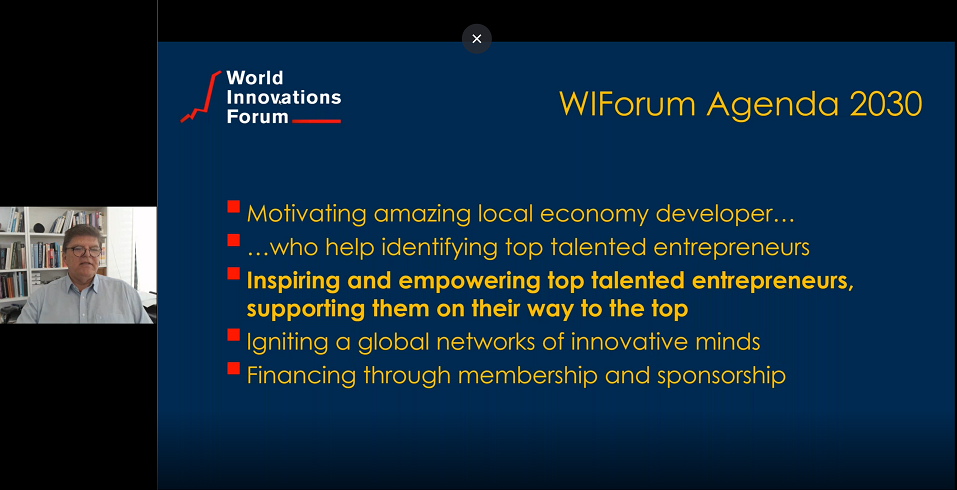
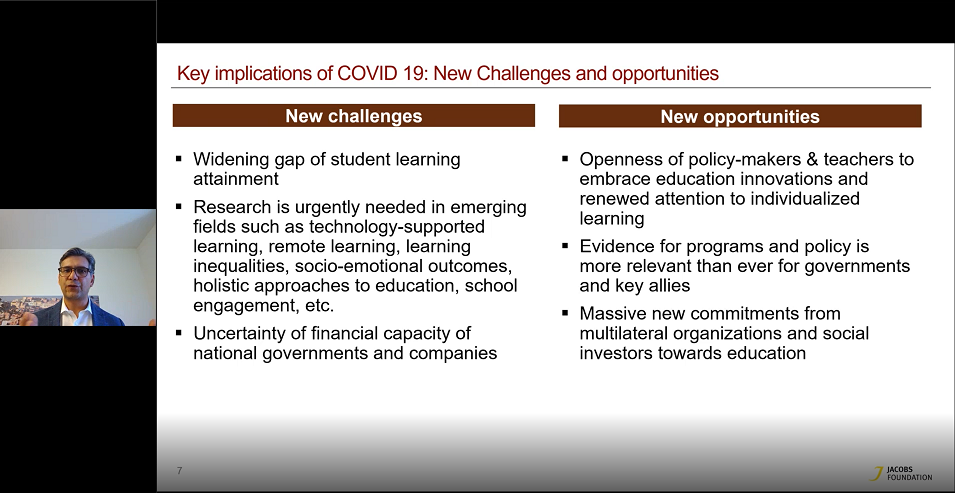 The World Innovations Forum is not the only organization with big ambitions. Another organization in our ecosystem are helping entrepreneurs to thrive, create large number of jobs and get their country to prosperity is the Jacobs Foundation. Their contribution to 2030 is to help with education and embracing learning variability. From a one fits all education system to learner adjusted education.
The World Innovations Forum is not the only organization with big ambitions. Another organization in our ecosystem are helping entrepreneurs to thrive, create large number of jobs and get their country to prosperity is the Jacobs Foundation. Their contribution to 2030 is to help with education and embracing learning variability. From a one fits all education system to learner adjusted education.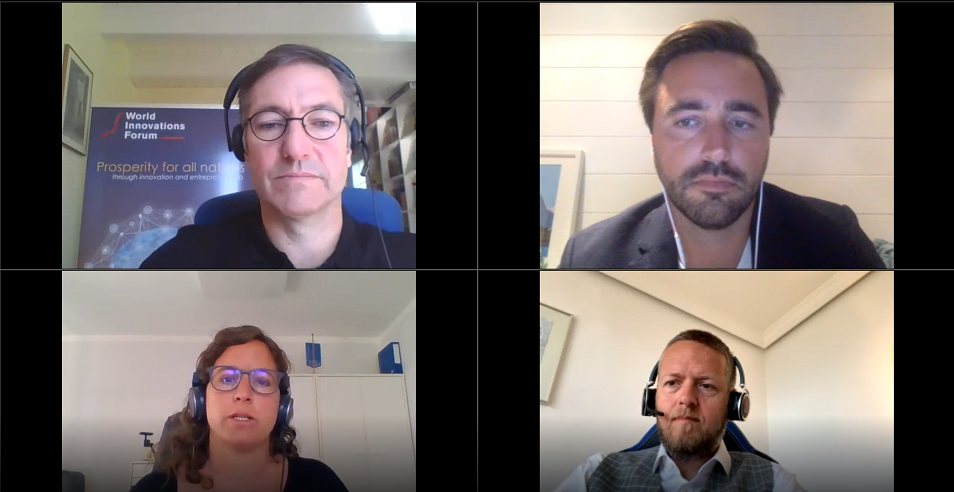 In the following entrepreneurs round table, representatives from Tech in Africa, Axel Peyrier, the Happel foundation, Alexander Lanz and SwissContact, Teresa Widmer spoke about what it takes to actually inspire entrepreneurs, not telling them what to do. Great discussions and a variety of perspectives.
In the following entrepreneurs round table, representatives from Tech in Africa, Axel Peyrier, the Happel foundation, Alexander Lanz and SwissContact, Teresa Widmer spoke about what it takes to actually inspire entrepreneurs, not telling them what to do. Great discussions and a variety of perspectives.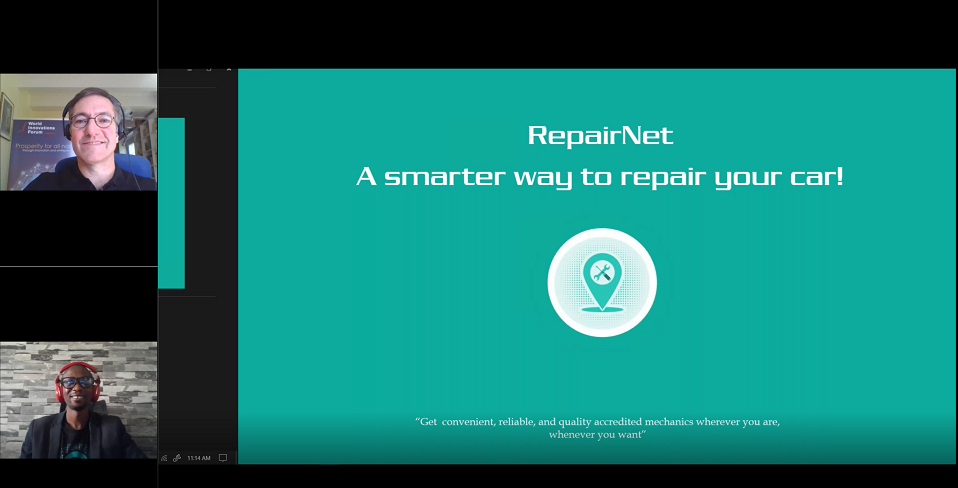
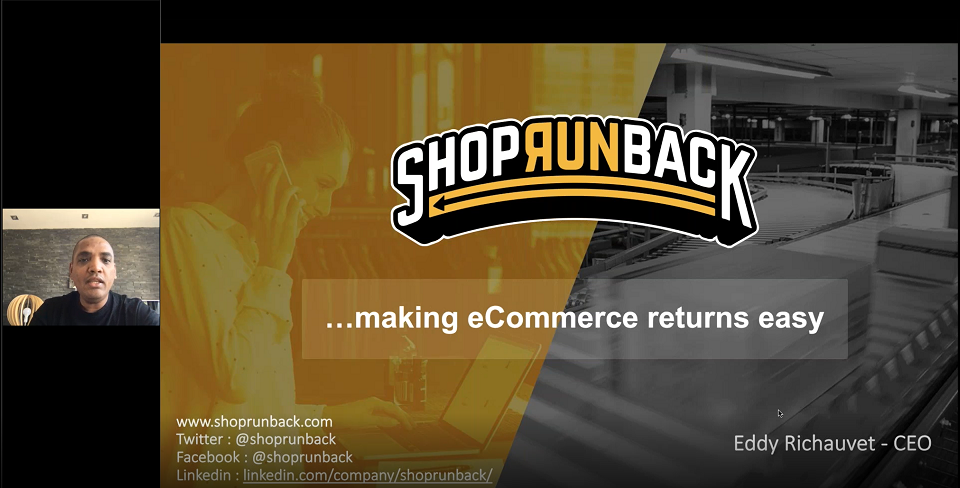
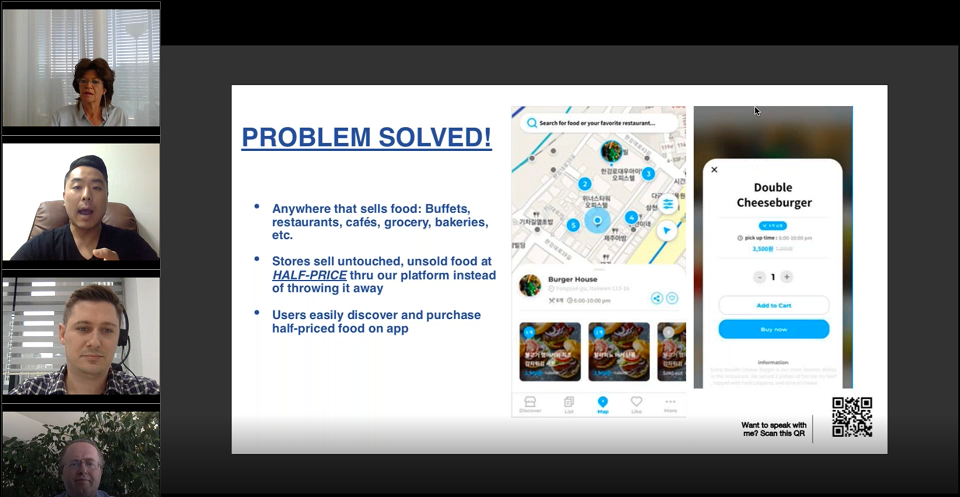
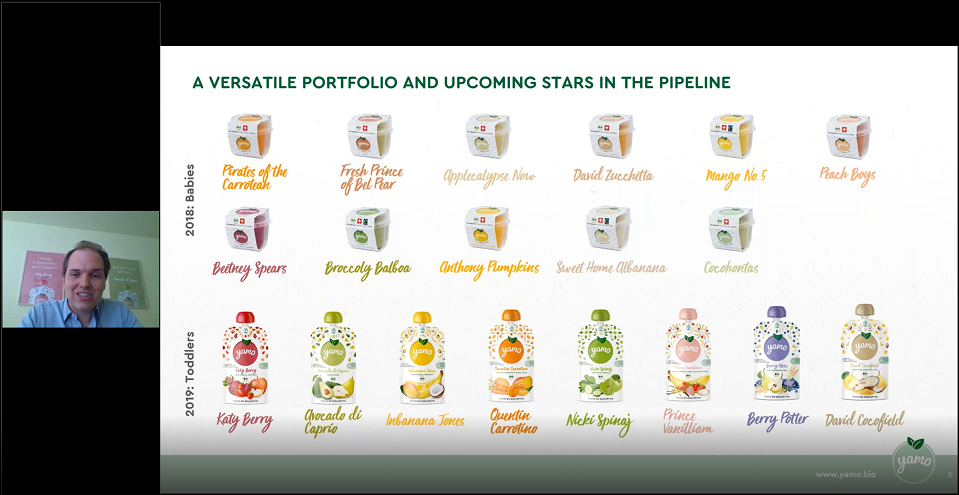
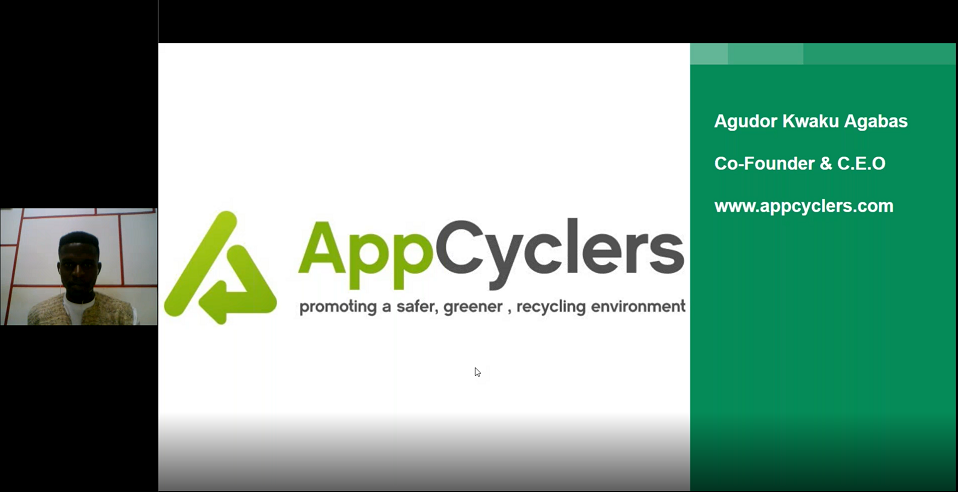
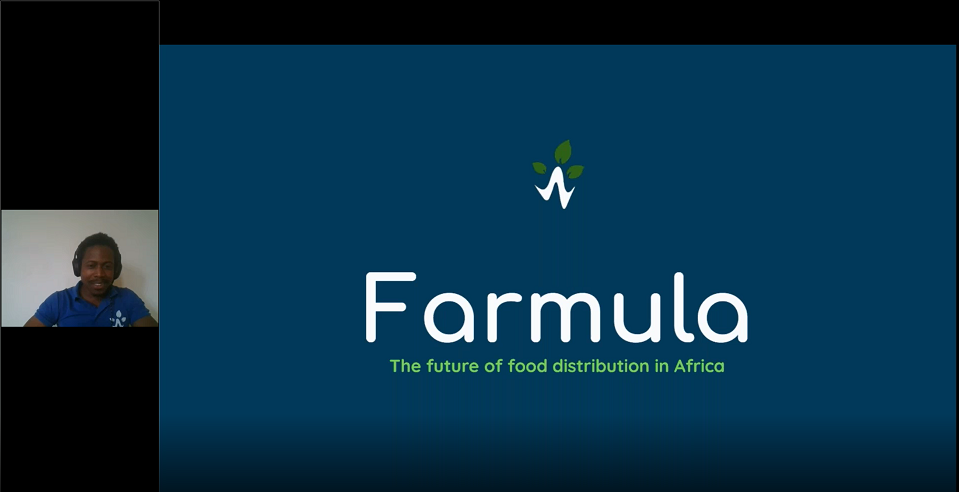
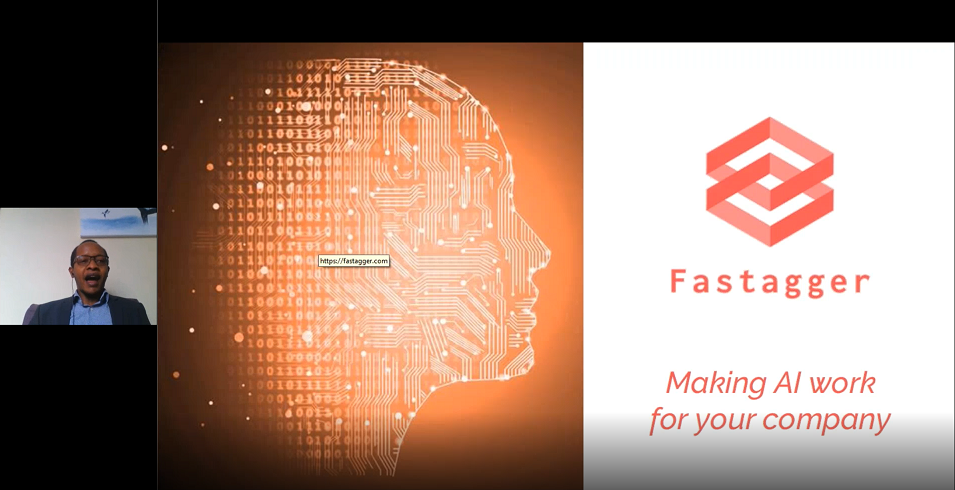
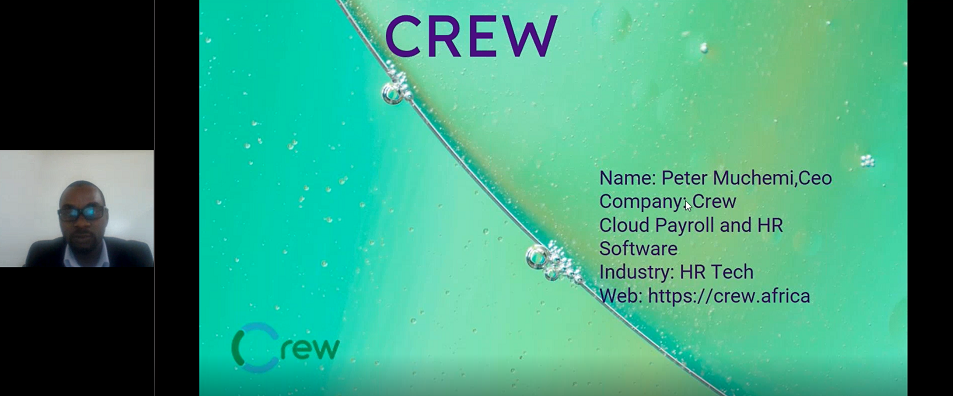
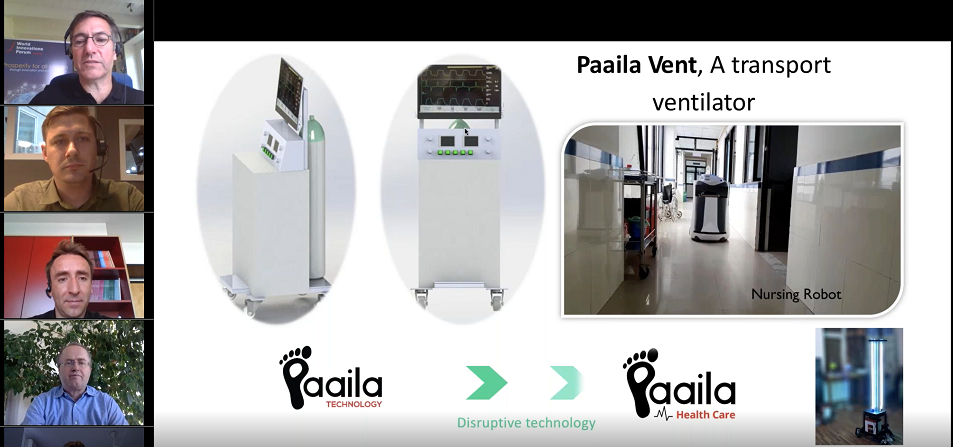
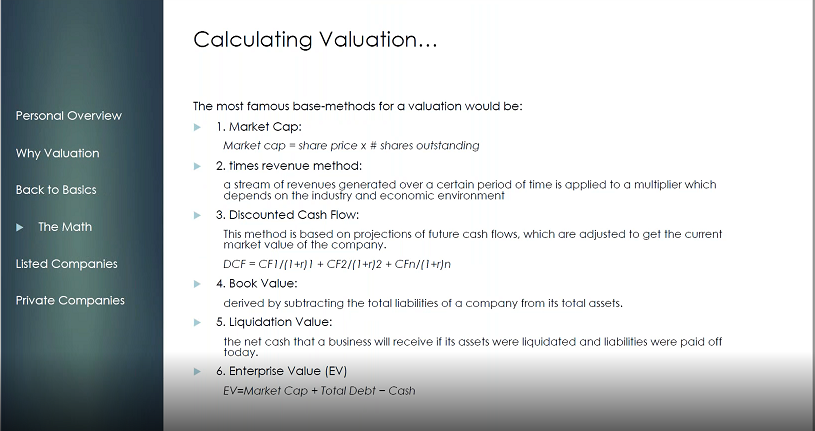 The most challenging finance question for startups is to create a meaningful and defensible company valuation. This challenge is the same, all over the planet. Karim Raffa, a finance expert, former entrepreneur and investor himself is educating startups to create valuations that attract investors but not ruining their capital. Karim is also helping investors to make meaningful offers, because asking for too much equity in the beginning may change the discussion quickly against both, investor and entrepreneur.
The most challenging finance question for startups is to create a meaningful and defensible company valuation. This challenge is the same, all over the planet. Karim Raffa, a finance expert, former entrepreneur and investor himself is educating startups to create valuations that attract investors but not ruining their capital. Karim is also helping investors to make meaningful offers, because asking for too much equity in the beginning may change the discussion quickly against both, investor and entrepreneur.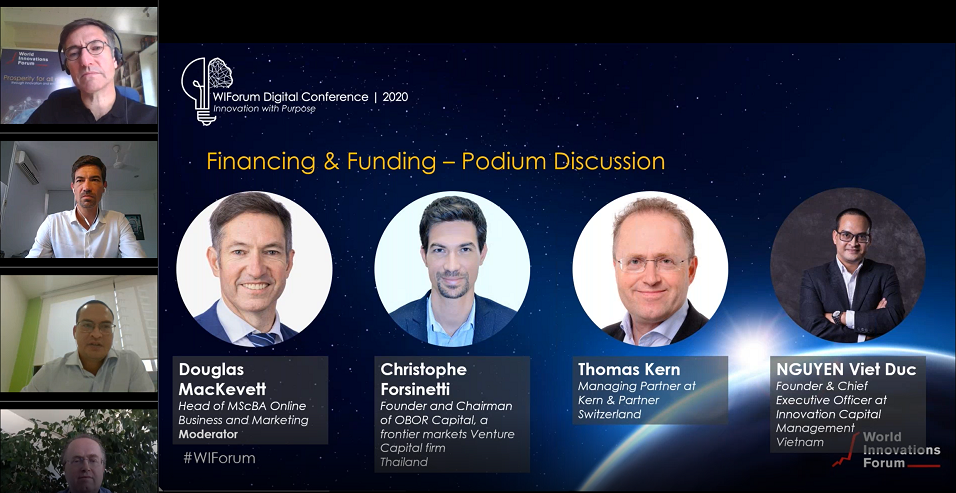 With investors from Cambodia [Christophe Forsinetti], Switzerland [Thomas Kern], and Vietnam [Duc Viet Nguyen], we had a great mix of representation from developing, fast emerging and developed nations. Investors from around the world look for gold nuggets. Average quality startups are nearing a million and have the highest risk. Lack of well structured FDI policies for equity foreign direct investments however still prohibit deep pocket investors to invest in these new countries. In Asia most startups move their HQs to Singapore and African companies to the UK, Singapore or Switzerland.
With investors from Cambodia [Christophe Forsinetti], Switzerland [Thomas Kern], and Vietnam [Duc Viet Nguyen], we had a great mix of representation from developing, fast emerging and developed nations. Investors from around the world look for gold nuggets. Average quality startups are nearing a million and have the highest risk. Lack of well structured FDI policies for equity foreign direct investments however still prohibit deep pocket investors to invest in these new countries. In Asia most startups move their HQs to Singapore and African companies to the UK, Singapore or Switzerland.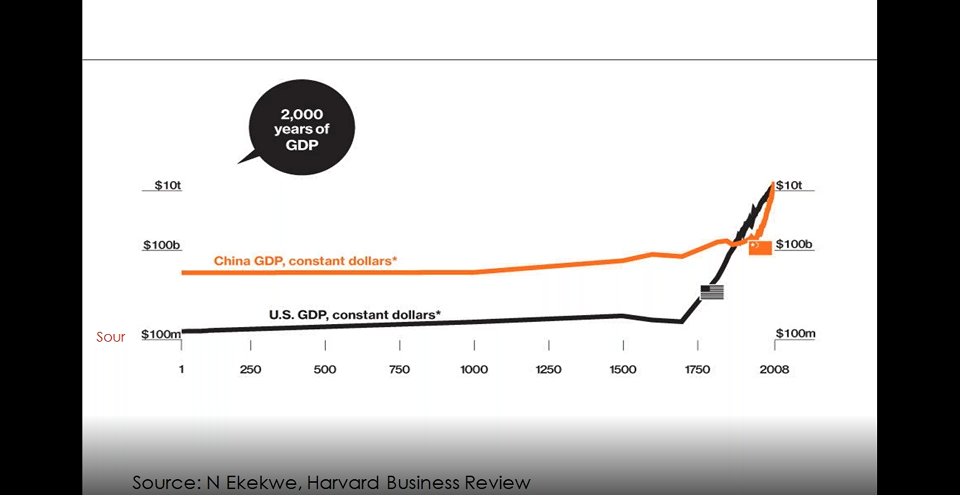
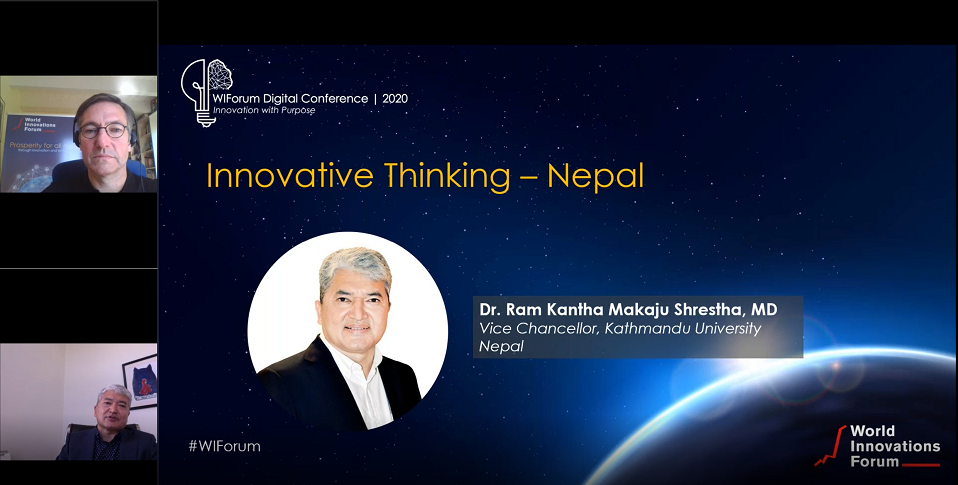 Education, in particular education for innovative thinking, like it is practices in Switzerland, was addressed by Dr. Ram Shrestha Ph.D., Vice Chancellor of the Kathmandu University. He gave insights into how and why Nepal should accelerate their motivation to more entrepreneurship in Nepal. Later on Dr. Matthes Fleck, Ph.D. from the University for Science and Arts in Lucerne spoke about the talent development of entrepreneurs from western universities and the importance for startups to get access to those talents early on.
Education, in particular education for innovative thinking, like it is practices in Switzerland, was addressed by Dr. Ram Shrestha Ph.D., Vice Chancellor of the Kathmandu University. He gave insights into how and why Nepal should accelerate their motivation to more entrepreneurship in Nepal. Later on Dr. Matthes Fleck, Ph.D. from the University for Science and Arts in Lucerne spoke about the talent development of entrepreneurs from western universities and the importance for startups to get access to those talents early on.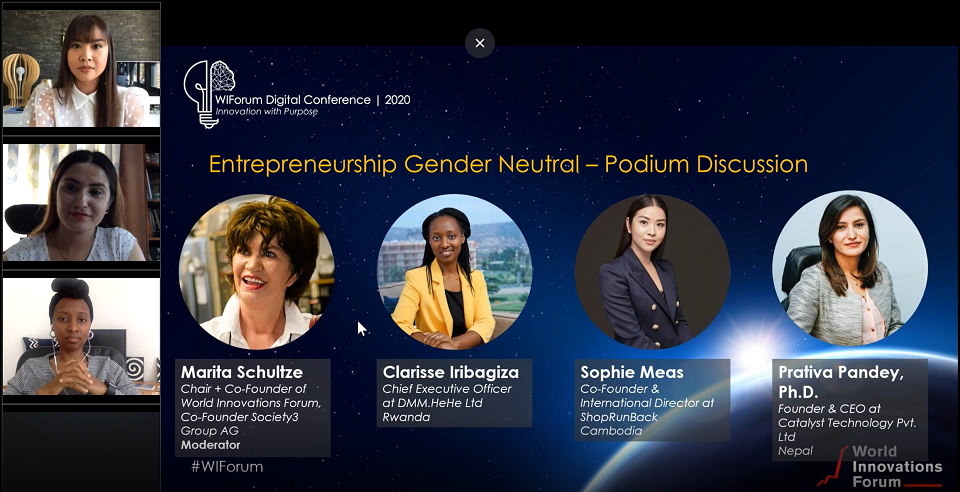 WIForum Chair and co-founder Marita Schultze organized a round table where female entrepreneurs including Clarisse Iribagiza from Rwanda, Sophie Meas from Cambodia and Prativa Pandey, Ph.D. from Nepal had a partly controversial discussion about the role women in entrepreneurship. In some countries it is not even a discussion about the gender sensitivity, yet in others societies, women are still discriminated in so many ways, like in Nepal, so that the entrepreneurship aspect is just a side effect.
WIForum Chair and co-founder Marita Schultze organized a round table where female entrepreneurs including Clarisse Iribagiza from Rwanda, Sophie Meas from Cambodia and Prativa Pandey, Ph.D. from Nepal had a partly controversial discussion about the role women in entrepreneurship. In some countries it is not even a discussion about the gender sensitivity, yet in others societies, women are still discriminated in so many ways, like in Nepal, so that the entrepreneurship aspect is just a side effect.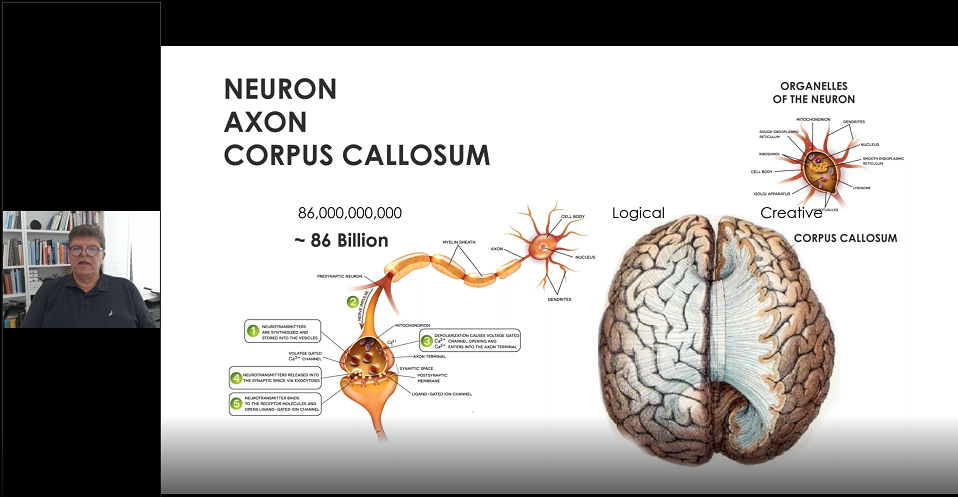 The most advanced technique to create innovative and disruptive ideas and turn them into reality is Neuro Ideation. Attendees learned how the brain actually composes ideas and how they are processed so that innovation can happen. The concept of Neuro Ideation is brand new and puts emerging countries and developed countries on a even playing level. Rapid idea development, accompanied by a disruptive business model can happen as quickly as 3 weeks but no longer than 6 months. The Deep Innovation Design method, with neuro ideation at its core fundamentally changes the act of innovation and disrupts innovation itself. The world Innovations Forum, together with the Society3 Group will be empowering entrepreneurs independent of which country they are from.
The most advanced technique to create innovative and disruptive ideas and turn them into reality is Neuro Ideation. Attendees learned how the brain actually composes ideas and how they are processed so that innovation can happen. The concept of Neuro Ideation is brand new and puts emerging countries and developed countries on a even playing level. Rapid idea development, accompanied by a disruptive business model can happen as quickly as 3 weeks but no longer than 6 months. The Deep Innovation Design method, with neuro ideation at its core fundamentally changes the act of innovation and disrupts innovation itself. The world Innovations Forum, together with the Society3 Group will be empowering entrepreneurs independent of which country they are from. Another highly innovation related topic, that is very timely as well, was presented by Cafer Tosun, an SAP executive and Advisory Board Member to the WIForum. Innovation Fighting Pandemic, is an initiative, led by Cafer Tosun, leveraging the innovative spirit to fight covid-19. After a short but intense campaign to wear a mask, the campaign was reduced in intensity after 62 countries announced masks are mandatory or at least highly recommended. He shared some details about a new project where innovative thinking was applied in its truest sense. A concept to eradicate covid-19 neither by vaccines or treatment but by mass testing and stopping the transfer of the virus. The method and concept to do so came neither from the technology sector nor from the medical sector, but from the genetics space. There is a good chance to test millions of people per day and up to 5 billion in a week. We will be providing updates after the next tests in a few days.
Another highly innovation related topic, that is very timely as well, was presented by Cafer Tosun, an SAP executive and Advisory Board Member to the WIForum. Innovation Fighting Pandemic, is an initiative, led by Cafer Tosun, leveraging the innovative spirit to fight covid-19. After a short but intense campaign to wear a mask, the campaign was reduced in intensity after 62 countries announced masks are mandatory or at least highly recommended. He shared some details about a new project where innovative thinking was applied in its truest sense. A concept to eradicate covid-19 neither by vaccines or treatment but by mass testing and stopping the transfer of the virus. The method and concept to do so came neither from the technology sector nor from the medical sector, but from the genetics space. There is a good chance to test millions of people per day and up to 5 billion in a week. We will be providing updates after the next tests in a few days.